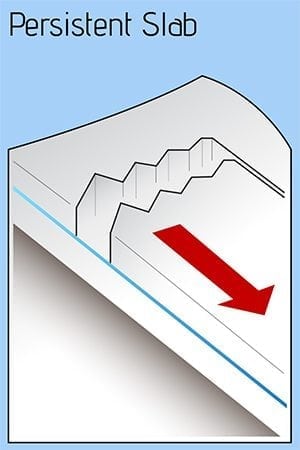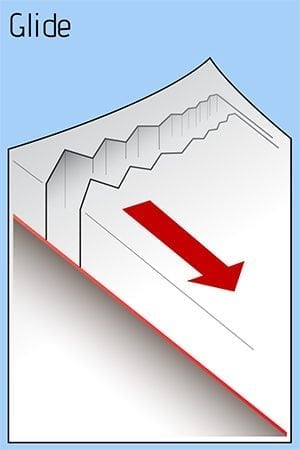Valdez
Above 4,000ftLow
2,000 to 4,000ftLow
Below 2,000ftLow
Degrees of Avalanche Danger
Avalanche Problems
Problem 1
Likelihood:
- Almost Certain
- Very Likely
- Likely
- Possible
- Unlikely
Size:
- Historic
- Very Large
- Large
- Small
Trend
- Increasing
- Steady
- Decreasing
Avalanche Activity
A small wind slab was intentionally triggered on Jan 15 in North Odyssey Gulley at 3300′ on a wind loaded feature. 10″ crown, 30 yards wide.
Please share your field observations including signs of stable snow HERE.
Weather
Friday and Saturday are forecasted to be mostly sunny with moderate north winds and temps between 0 and freezing.
The most recent NWS rec Forecast can be found HERE:
314 PM AKST Thu Jan 17 2019
The Thompson Pass Mountain Forecast covers the mountains (above
1000 ft) surrounding Keystone Canyon through Thompson Pass to
Worthington Glacier.
Tonight Fri
Temp at 1000` 15 F 17 F
Temp at 3000` 13-22 F 8-16 F
Chance of precip 0% 0%
Precip amount
(above 1000 FT) 0.00 in 0.00 in
Snow amount
(above 1000 FT) 0 in 0 in
Snow level sea level sea level
Wind 3000` ridges NE 14-42 mph NE 11-42 mph
Additional Information
SNOWPACK BIG PICTURE: The snowpack has gained strength since the last major storm and avalanche cycle over New Years. No significant avalanche activity or problem layers have been identified since then.
Recent snowpack history, from top to bottom:
Jan 13-17 was mostly clear and dry with light to moderate north winds. Widespread Surface Hoar growth.
Jan 12-13 brought 3-10″ of new snow with little wind.
Jan 4-12 was VERY cold and dry: moderate winds and wind chill reaching -50F. Pockets of surface hoar and widespread Near Surface Faceting.
Dec 30-Jan 3 The New Year’s Eve storm brought nearly 2.5″ of SWE to Valdez and almost another 1″ (SWE) on the 2-3rd of January. The rain line was 1200′ during the Jan 2-3 storm (which has now formed a 1-3″ crust locking up all the snow beneath it), it accumulated to over 3′ above 2000′ near Thompson Pass. Both of these storms had little wind.
Above 4000′ the snowpack averages well over 300cm deep and has good strength and structure (few lemons). Below 4000′, the snowpack is significantly shallower and has old problem layers that are bonding well (rounding) and currently dormant: facet-crust combos and BASEL facets (all the way to sea level).
If you get out riding, please send in an observation.
Do a rescue practice with your partners. Always carry a beacon, shovel, and probe, and KNOW HOW TO USE THEM.
Practice good risk management, which means only expose one person at a time to slopes 30 degrees and steeper, make group communication and unanimous decision making a priority, and choose your terrain wisely: eliminating unnecessary exposure and planning out your safe zones and escape routes.
Announcements
The current avalanche hazard rating is LOW for the Valdez region. There has been widespread Surface Hoar and Near Surface Faceting that will be a problem layer in the future. Click FULL FORECAST for more safety information and please share your field observations HERE.
There are a lot of events coming up in January, check out our Facebook page for the complete list.

